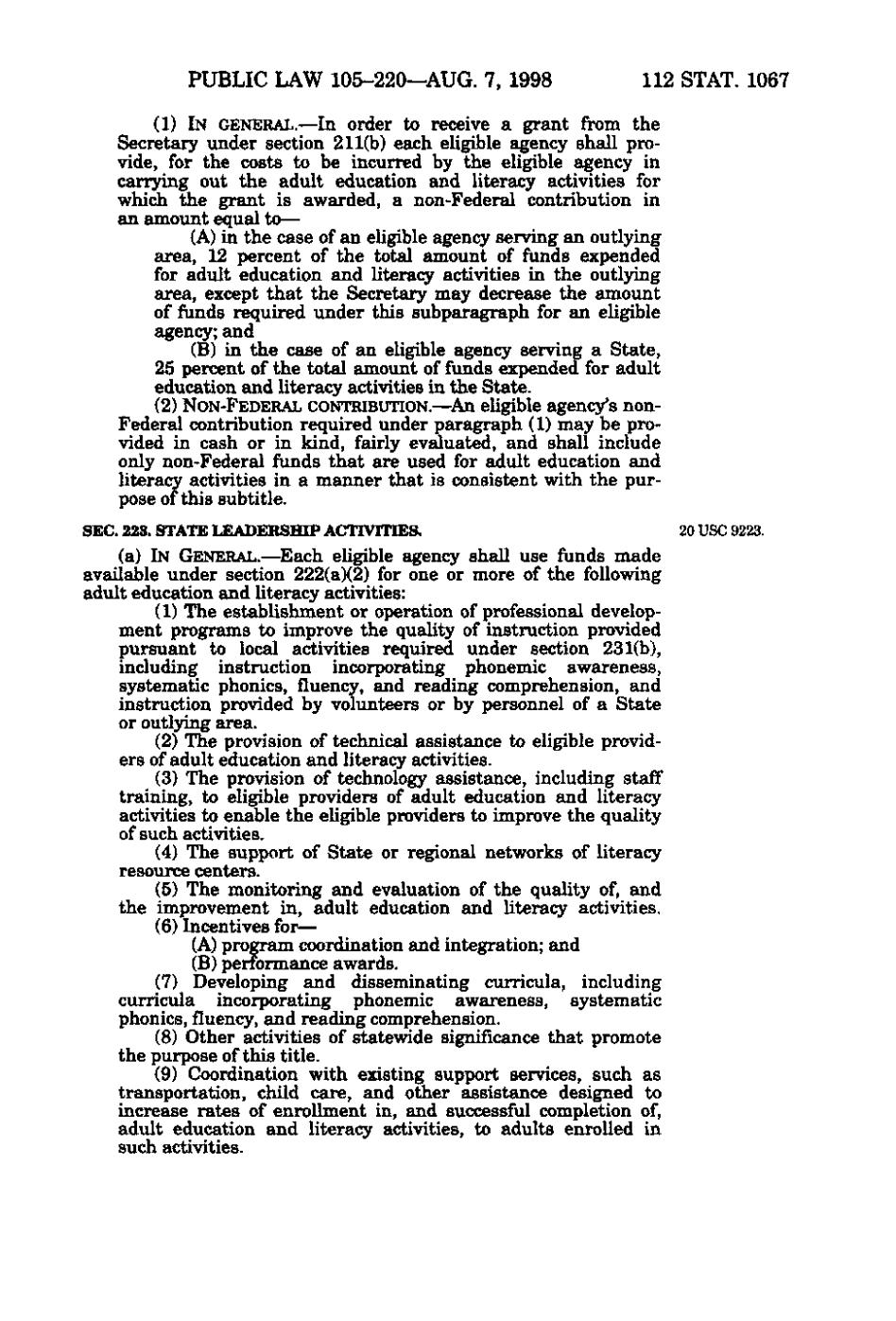PUBLIC LAW 105-220—AUG. 7, 1998 112 STAT. 1067 (1) IN GENERAL.—In order to receive a grant from the Secretary under section 211(b) each eligible agency shall provide, for the costs to be incurred by the eligible agency in carrying out the adult education and literacy activities for which the grant is awarded, a non-Federal contribution in an amount equal to— (A) in the case of an eligible agency serving an outlying area, 12 percent of the total amount of funds expended for adult education and literacy activities in the outlying area, except that the Secretary may decrease the amount of funds required under this subparagraph for an eligible agency; and (B) in the case of an eligible agency serving a State, 25 percent of the total amount of funds expended for adult education and literacy activities in the State. (2) NON-FEDERAL CONTRIBUTION.— An eligible agency's non- Federal contribution required under paragraph (1) may be provided in cash or in kind, fairly evaluated, and shall include only non-Federal funds that are used for adult education and literacy activities in a manner that is consistent with the purpose of this subtitle. SEC. 223. STATE LEADERSHIP ACTIVrnES. 20 USC 9223. (a) IN GENERAL. —Each eligible agency shall use funds made available under section 222(a)(2) for one or more of the following adult education and literacy activities: (1) The establishment or operation of professional development programs to improve the quality of instruction provided pursuant to local activities required under section 231(b), including instruction incorporating phonemic awareness, systematic phonics, fluency, and reading comprehension, and instruction provided by volunteers or by personnel of a State or outlying area. (2) The provision of technical assistance to eligible providers of adult education and literacy activities. (3) The provision of technology assistance, including staff training, to eligible providers of adult education and literacy activities to enable the eligible providers to improve the quality of such activities. (4) The support of State or regional networks of literacy resource centers. (5) The monitoring and evaluation of the quality of, and the improvement in, adult education and literacy activities. (6) Incentives for— (A) program coordination and integration; and (B) performance awards. (7) Developing and disseminating curricula, including curricula incorporating phonemic awareness, systematic phonics, fluency, and reading comprehension. (8) Other activities of statewide significance that promote the purpose of this title. (9) Coordination with existing support services, such as transportation, child care, and other assistance designed to increase rates of enrollment in, and successful completion of, adult education and literacy activities, to adults enrolled in such activities.
�
